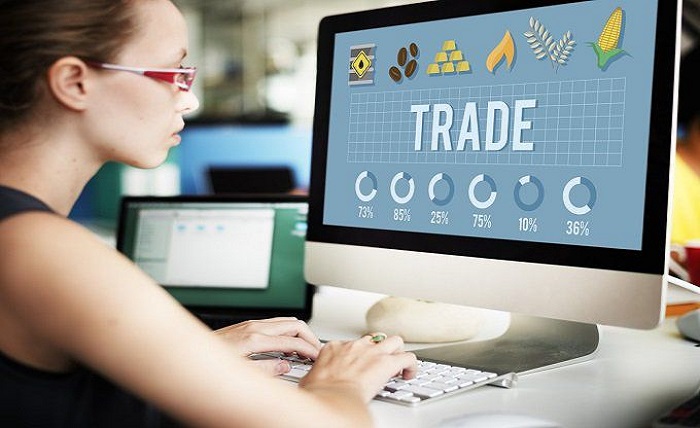Trading In Commodities: An Overview

The majority of individuals’ daily lives revolve around commodities. A commodity is a basic good used in trade and can be exchanged for other similar items. Commodities like cereals, gold, meat, natural gas, etc., are classic examples. Commodities can be a significant way for investors to broaden their portfolios outside traditional securities. Some investors also turn to these during times of marketplace turbulence because the commodity prices frequently move counter to those of stocks. Trading in commodities was primarily the domain of professional traders and needed significant quantities of cash and knowledge. There are more choices and options available today for trading commodities.
A Background Of Investing In Commodities
An occupation with a lengthy history than the dealing of bonds and stocks is trading in commodities. The ability to develop sophisticated trade systems and enable commodities trade was a critical factor in the expansion of many empires. Commodities are still traded globally in contemporary times. A physical site where commodities are traded and a legal entity established to uphold the regulations governing the trading of standardized commodity contracts and associated investment products are referred to as commodities exchanges.
Unique Features Of The Commodities Marketplace
The fundamental rules of supply and demand, taken in their broadest meaning, govern commodity markets. Demand is affected by changes in supply, and prices are higher when supply is low. Therefore, significant changes in a commodity’s supply, such as a widespread disease affecting cattle, might increase the typically predictable and steady demand for cattle. Prices may be impacted by both technology advancements and global economic development. For instance, the rise of India and China as major manufacturing nations (and the resulting increased demands for industrial metals) has resulted in a decrease in the number of metals, like steel, available to the rest of the globe.
Different Commodities
Typically, commodities that are transacted are divided into four major categories:
Metals
Metal commodities include copper, silver, platinum, and gold. Some investors may choose to invest in valuable metals, especially gold, because it is a dependable metal with actual, transferrable value during market turmoil or bear markets. Investing in precious metals can also hedge against rising inflation or currency depreciation.
Energy
Energy commodities include gasoline, natural gas, fuel oil, and crude oil. Changes in the world’s economy and a decline in oil production from older wells have historically increased oil prices. It results from rising energy-related product demand and time as falling oil supplies.
Meat And Animals
Livestock and meat items include [ork bellies, lean pigs, live animals, and feeder cattle.
Agricultures
Agricultural items include corn, wheat, cotton, soybeans, rice, coffee, cocoa, and sugar. In the agricultural sector, grains can be highly volatile during the summertime or other times of weather-related shifts. Population expansion and the restricted availability of agricultural products can present opportunities for investors interested in the agricultural industry to profit from growing agricultural commodity prices.
Conclusion
It is possible for new and seasoned traders who are trading commodities to do so, offering them access to markets. While commodity derivatives contracts give the most straightforward way to observe market expense changes, other less dangerous investment choices also offer enough opportunity for commodity exposure. Fundamentally speaking, commodities are considered problematic investment opportunities since unpredictable weather patterns, outbreaks may impact them, and natural and artificial calamities that are challenging, if not unattainable, to predict. These options may prove advantageous if certain commodities have been in short supply or at historically low levels for some time. To assure success, pay attention to market trends.



